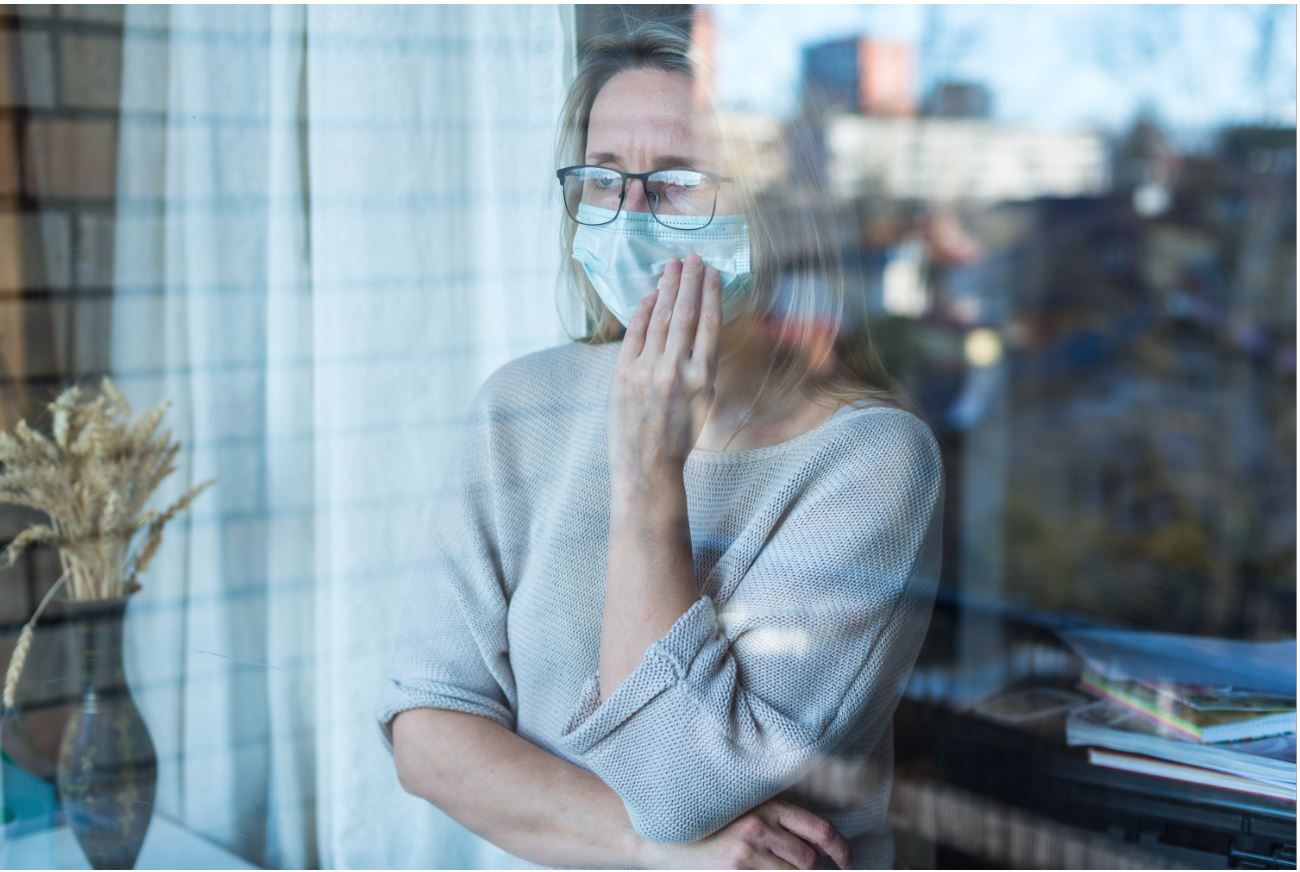- Clinical Technology
- Adult Immunization
- Hepatology
- Pediatric Immunization
- Screening
- Psychiatry
- Allergy
- Women's Health
- Cardiology
- Pediatrics
- Dermatology
- Endocrinology
- Pain Management
- Gastroenterology
- Infectious Disease
- Obesity Medicine
- Rheumatology
- Nephrology
- Neurology
- Pulmonology
COVID-19: Mental Illness Associated with Increased Mortality in Hospitalized Patients
A psychiatric diagnosis for patients hospitalized with COVID-19 is associated with a significantly increased risk for death, suggests a recent study.
©mdbildes/stock.adobe.com

A psychiatric diagnosis for patients hospitalized with coronavirus disease 2019 (COVID-19) is associated with a significantly increased risk for death, according to a study published September 30, 2020 in JAMA Network Open.
The study results showed that patients who were hospitalized with COVID-19 and who had been diagnosed with a psychiatric disorder had a 1.5-fold increased risk for COVID-19-related mortality vs those who had not received a psychiatric diagnosis.
"Pay attention and potentially address/treat a prior psychiatric diagnosis if a patient is hospitalized for COVID-19, as this risk factor can impact the patient's outcome — death — while in the hospital," said lead author Luming Li, MD, assistant professor of psychiatry, associate medical director of quality improvement, Yale New Haven Psychiatric Hospital, New Haven, Connecticut, in an interview with Medscape Medical News.
Li and colleagues analyzed data on 1685 patients (mean age, 65.2 years; 52.6% men) hospitalized with COVID-19 between February 15-April 25, 2020, and who were followed up to May 27, 2020. The patients were drawnfrom the Yale New Haven Health System and the median follow-up period was 8 days (interquartile range, 4-16 days).
Of these patients, 28% had received a psychiatric diagnosis before hospitalization; patients in this group were significantly older and more likely to be women, white, non-Hispanic, and to have medical comorbidities (ie, cancer, cerebrovascular disease, congestive heart failure, diabetes).
Psychiatric diagnoses were defined in accordance with International Classification of Diseases codes that included mental and behavioral health, Alzheimer disease, and self-injury.
Patients with a psychiatric diagnosis had a higher mortality rate vs those with no psychiatric diagnosis, with 35.7% vs 14.7% of 2-week mortality, 40.9% vs 22.2% of 3-week mortality rate, and 44.8% vs 31.5% of 4-week mortality rate.
In the unadjusted model, the risk for COVID-19-related hospital mortality was greater for those with any psychiatric diagnosis (hazard ratio [HR], 2.3; 95% confidence interval [CI], 1.8-2.9; P<.001). In the adjusted model that controlled for demographic characteristics, other medical comorbidities, and hospital location, the mortality risk somewhat decreased but remained significantly higher (HR, 1.5; 95% CI, 1.1-1.9; P=.003).
The authors note that the reason psychiatric illness appears to be associated with COVID-19-related mortality is unclear. They suggest psychiatric symptoms may be a marker of systemic pathophysiology, eg, inflammation, that could predispose to mortality, or that mental illness may augment such inflammation and perhaps compromise immunity but draw no conclusions.
No Rx Required for COVID-19 Vaccination But ACIP Calls for Better Informed Consent Process
September 22nd 2025The ACIP on September 19 narrowly voted against requiring a prescription to get the shot but urged more detailed discussion of vaccine risks during shared decision making conversations.
